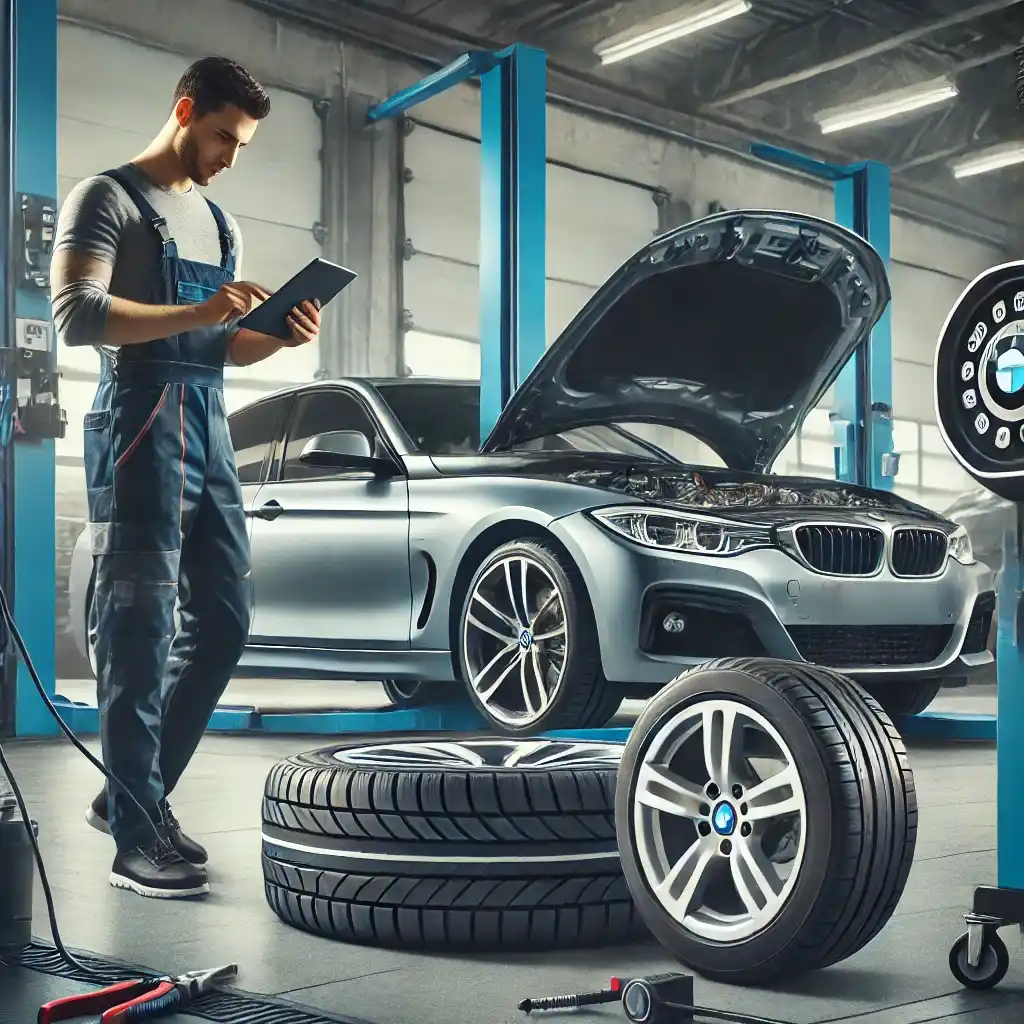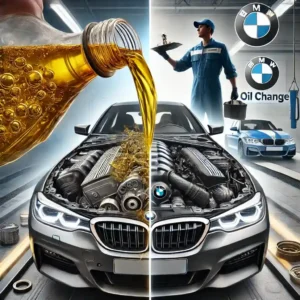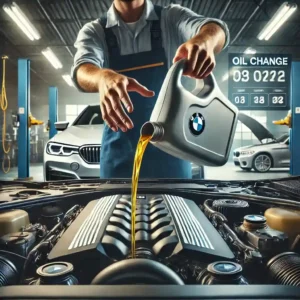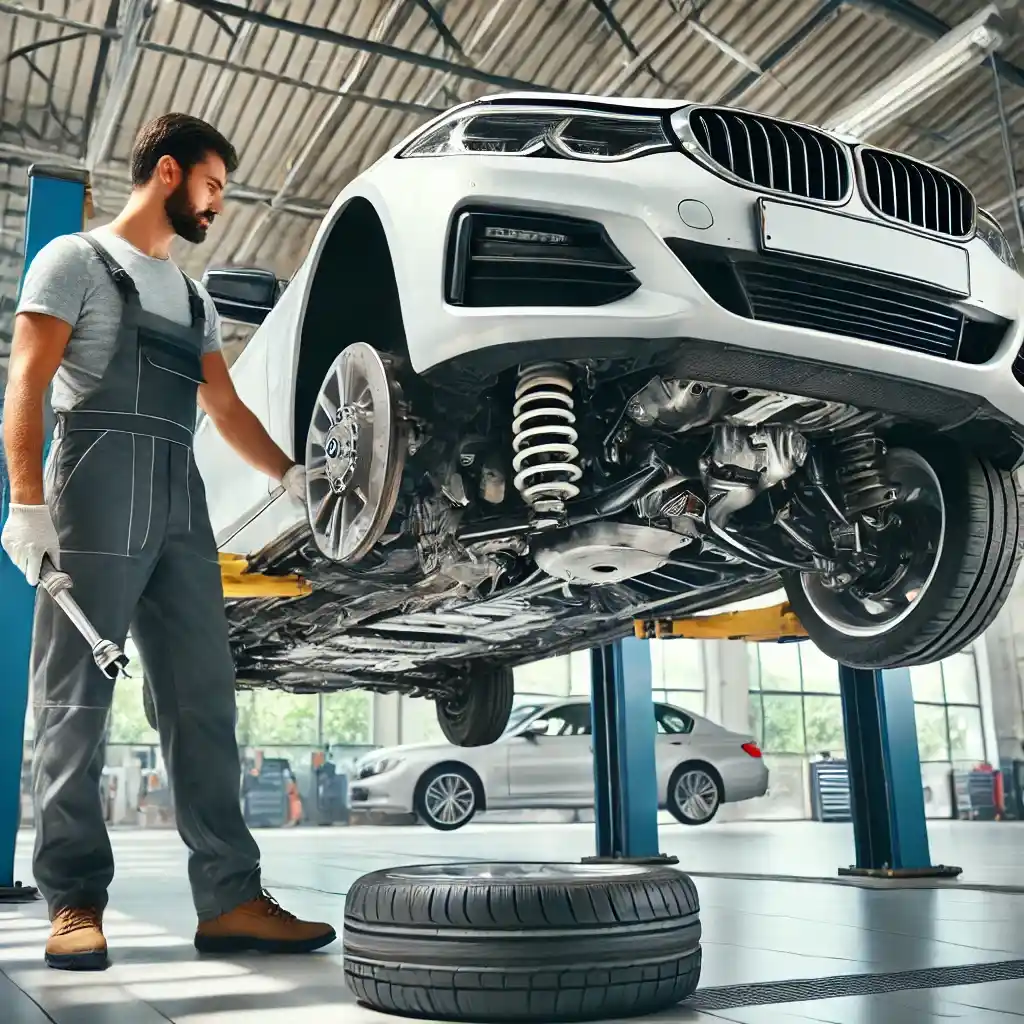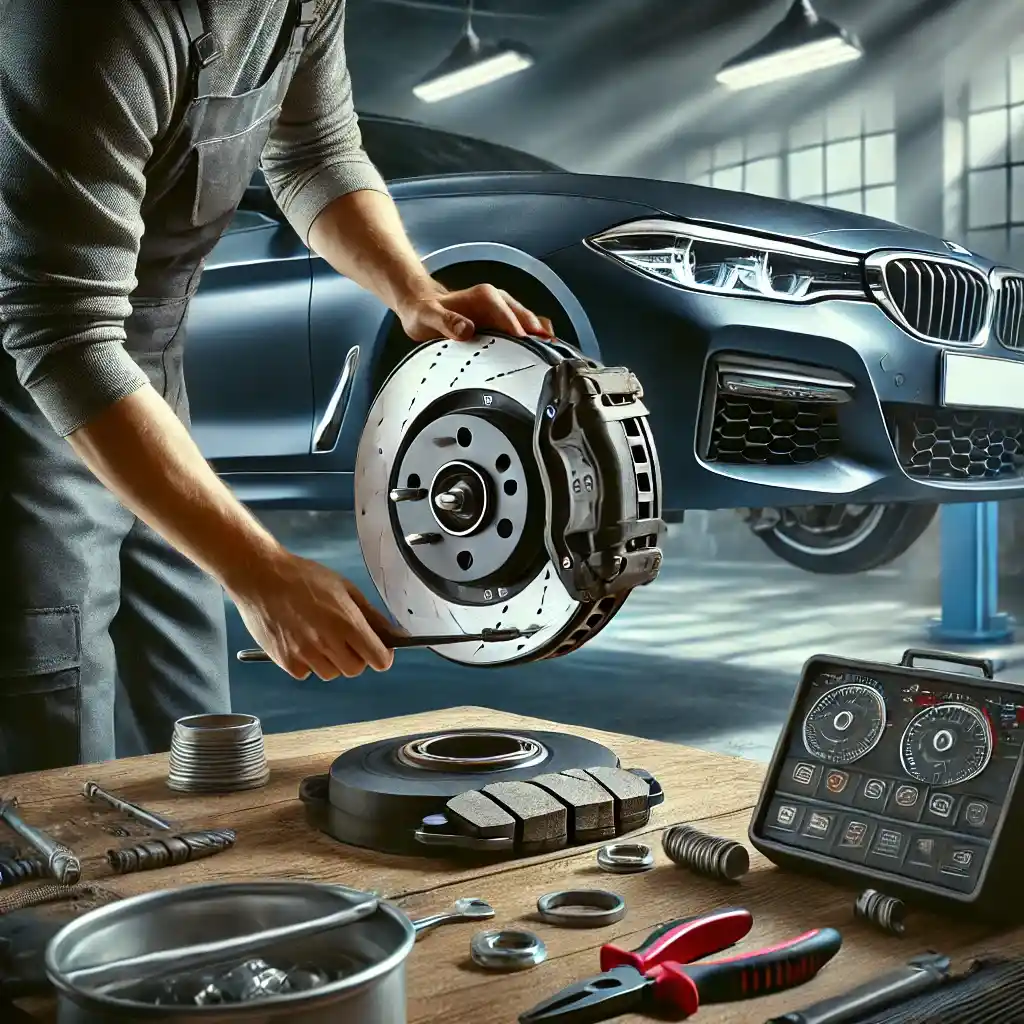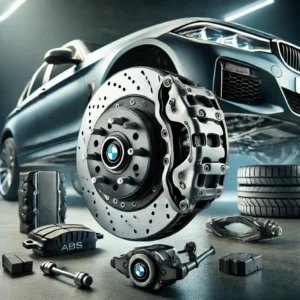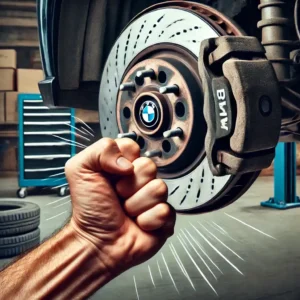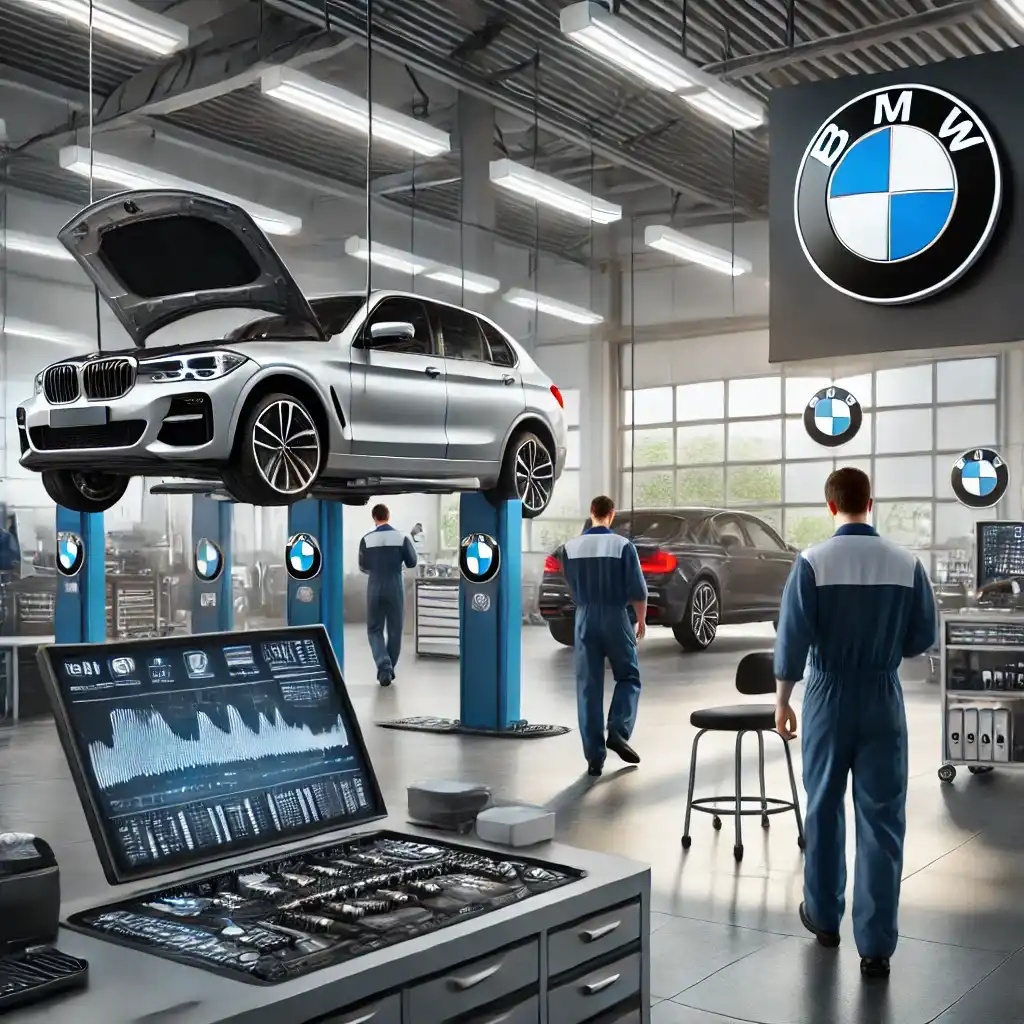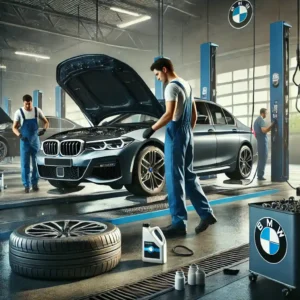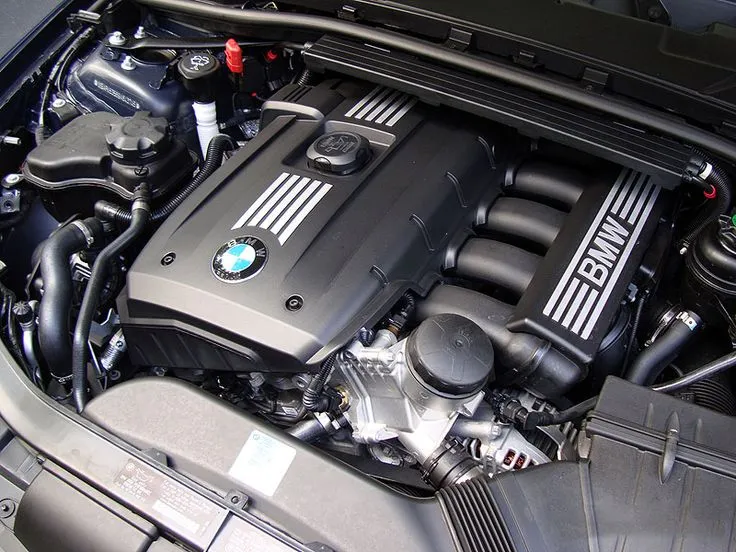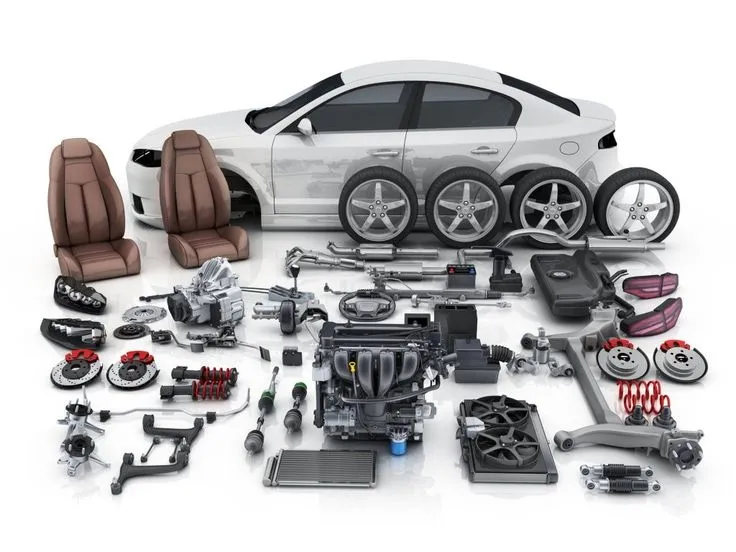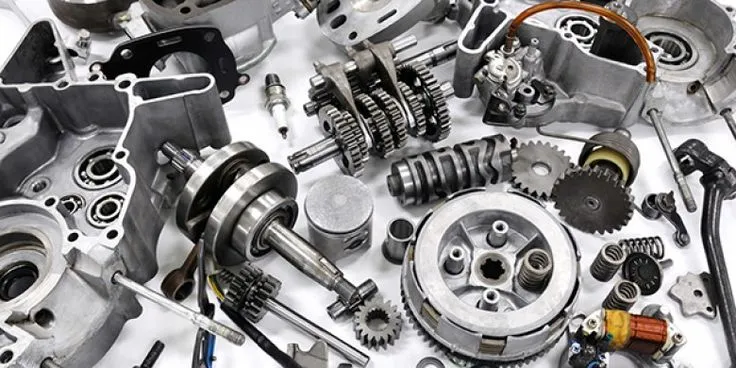The Royal Driving Standard
Rolls-Royce ownership is not merely owning a vehicle; it’s an experience of supreme elegance, precision, and all-time class. In Dubai, where status and style find their ultimate expression in the shape of luxury cars, The Car Lab Auto Repair Center remains the ultimate go-to for owners of Rolls-Royce who desire the best available Rolls-Royce Servicing and Repair center.
From the bespoke interior to the potent motor, it includes features like triple chrome-plated hardware and double-layer windows with gold film highlights, and also uses the finest materials, such as real wood veneers and premium leather. Unlike other ordinary cars, Rolls-Royce needs a proper maintenance and repair service center to preserve its high performance and showroom standard condition.
Reasons Why Rolls-Royce Needs Expert Maintenance and Repair
Rolls-Royce cars are engineering masterpieces that combine traditional and advanced technology. So Rolls-Royce Servicing especially needs good trainers for its diagnostic maintenance.
- Firstly, Rolls-Royce technicians use advanced diagnostic equipment that needs to be handled by trained experts. Our brand-trained technicians know the complex systems and proprietary software that govern the operation of the engine-down air
- Secondly, use transparent and reliable. The parts and materials that go into the Rolls-Royce vehicles are bespoke and authentic tools, so generic or replacement parts will impair performance or leave permanent damage.
Typing to work and do repairs in garage shops can lead to misdiagnoses and expensive outcomes. This makes Dubai’s Rolls-Royce owners seek the services of experts such as the Car Lab, where each service is done with accuracy, precision, and original parts.
Typical Rolls-Royce Upkeep Requirements
Maintaining a Rolls-Royce involves a variety of tasks that are essential to the longevity and dependability of the car. Rolls-Royce Servicing is available at The Car Lab Auto Repair Center.
- Engine diagnostics and performance tuning
- Suspension and hydraulic system
- Checks of the electrical and computer systems
- Air conditioning and climate system calibration
- Oil changing and fluid replacements
- Windscreen replacement
- Paint protection and ceramic coating
- Interior and exterior detailing
- Performance update and Pre-purchase inspections
All these services are available at The Car Lab Auto Repair Center for Rolls-Royce Repair with advanced diagnostic equipment and facilities, with transparent pricing and customer satisfaction service at the dealership level.
Owners Could Experience Common Problems During Rolls-Royce Servicing
The following are some common repair issues that owners of Rolls-Royce may encounter despite their exceptional build quality.
Air suspension problem:
The advanced air suspension system is designed for unparalleled comfort, but it requires calibration; leaks or compressor failures can cause uneven driving or a rough driving experience.
Brake System and Wear, and Precision Tune-in
Royce brakes are built for strong yet smooth stopping. Senior problems or regular wear and tear could compromise braking performance; thus, quick inspection and repair are quite important.
Problem with the cooling system:
High temperatures can tax the cooling system; radiator leaks, coolant, or a malfunctioning thermostat could cause overheating, compromising engine condition.
Error on the Electronic Dashboard:
Higher electronic control, everything from car diagnostics to navigation. Incomplete display or warning lights may be caused by malfunctioning sensors or software bugs.
Maintenance of batteries and charging systems:
Rolls-Royce vehicles have sophisticated electrical systems that depend on healthy alternators or batteries. Electrical faults or starting from these system failures.
What Makes The Car Lab Auto Repair Center Unique in Dubai For Rolls-Royce Servicing
Technologists with brand certification: Our staff is especially equipped to handle Rolls-Royce vehicles with the accuracy the customers demand.
Modern diagnostic and repair tools: For you, Car Lab invests in the latest advanced tools, which match manufacturer standards by means of modern tools to analyze the problems within the vehicle system.
Premium service system: Car Lab provides you with complete openness, honest assessments, and individual attention centered on the customer’s needs.
Original Rolls-Royce parts: To keep your car authentic and performable, The Car Lab Auto Repair Center only uses factory-certified parts.

Why Authentic vs Aftermarket Parts Are Important For Your Rolls-Royce
Perfect fit
Designed especially for every model.
Peak performance
Matches exactly the factory specs.
Longevity
Reduces future risk damage and ensures longevity.
Resale value
Upholding the original integrity of the car.
Aftermarket parts, on the other hand, could cause long-term dependability problems, performance loss, and incorrect operation. The Car Lab, in this role, provides fully authentic parts for your Rolls-Royce.
Benefits of Choosing The Car Lab Auto Repair Center for Rolls-Royce Servicing
Choosing the Car Lab as your Rolls-Royce service center offers advantages, including years of Rolls-Royce experience and expert technicians.
- Customized maintenance schedules and diagnosis tools
- Clear, honest pricing
- Neat, first-rate service surroundings
- Rapid turnaround time without sacrificing quality
- Real components and state-of-the-art repair
Rolls-Royce Service Contact
Rolls-Royce is offering a perfect packaging plan for service. The Car Lab Auto Repair Center Dubai contract for keeping your Rolls-Royce in A1 condition. Our service contract includes 4 minor and 1 major service. Rolls-Royce Servicing price varies, depending on the systems serviced.
Are you ready to service your Rolls-Royce? Contact us for more details and pricing.
Advice For Rolls-Royce Owners: How To Increase Vehicle Life
Track the Maintenance Schedule
Adhere strictly to the service intervals recommended by the owner’s manual. Regular checkups will save you from big damage and expenses.
Use Genuine Parts and Premium Fluids
Dubai’s heat and irregular sandstorms can wear down critical components. Avoid sudden speed-ups and hard braking.
Keep The Car Clean Inside and Outside
Regular exterior washing and waxing of the paint protects it from UV rays and sand damage. Vacuum and condition the leather regularly to keep it from drying or cracking. Engine bay cleaning also keeps the performance better and allows you to know about early detection issues early.
Keep An Eye On The Alignment and Condition of Your Tires
To avoid uneven wear and lessen suspension stress, check tire pressure. Rolls-Royce ensures smooth movement, timely tire rotation, and balanced and aligned wheels.
Keep It In a Garage or Other Climate-Controlled Location
Electronics and interior trims can be harmed by prolonged exposure to sunlight, dust, and moisture.
Trust Experts Only
A Rolls-Royce is too valuable and complex for an average worker or mechanic to handle. Service attempts at unapproved garages may result in expensive errors.
Inappropriate parts used in a vehicle may result in improper performance and devalue it forever. Every part should be diagnosed and repaired to the highest standards at reputable facilities like the car lab.
Pro tip: Demand complete transparency for each repair or maintenance task and insist on authentic parts
Conclusion:
Are you prepared for first-rate service? Your Rolls-Royce needs professional, regular servicing to preserve its value, performance, and luxury. The car lab in Dubai provides Rolls-Royce owners with the ideal fusion of authentic parts, top-notch technical expertise, and a
customer-focused experience. Your car will stay in perfect condition for many years to come if
You trust Car Lab with your routine maintenance or complicated repairs. Make an appointment for our service with the Car lab right now to give your Rolls-Royce the royal treatment it merits.


